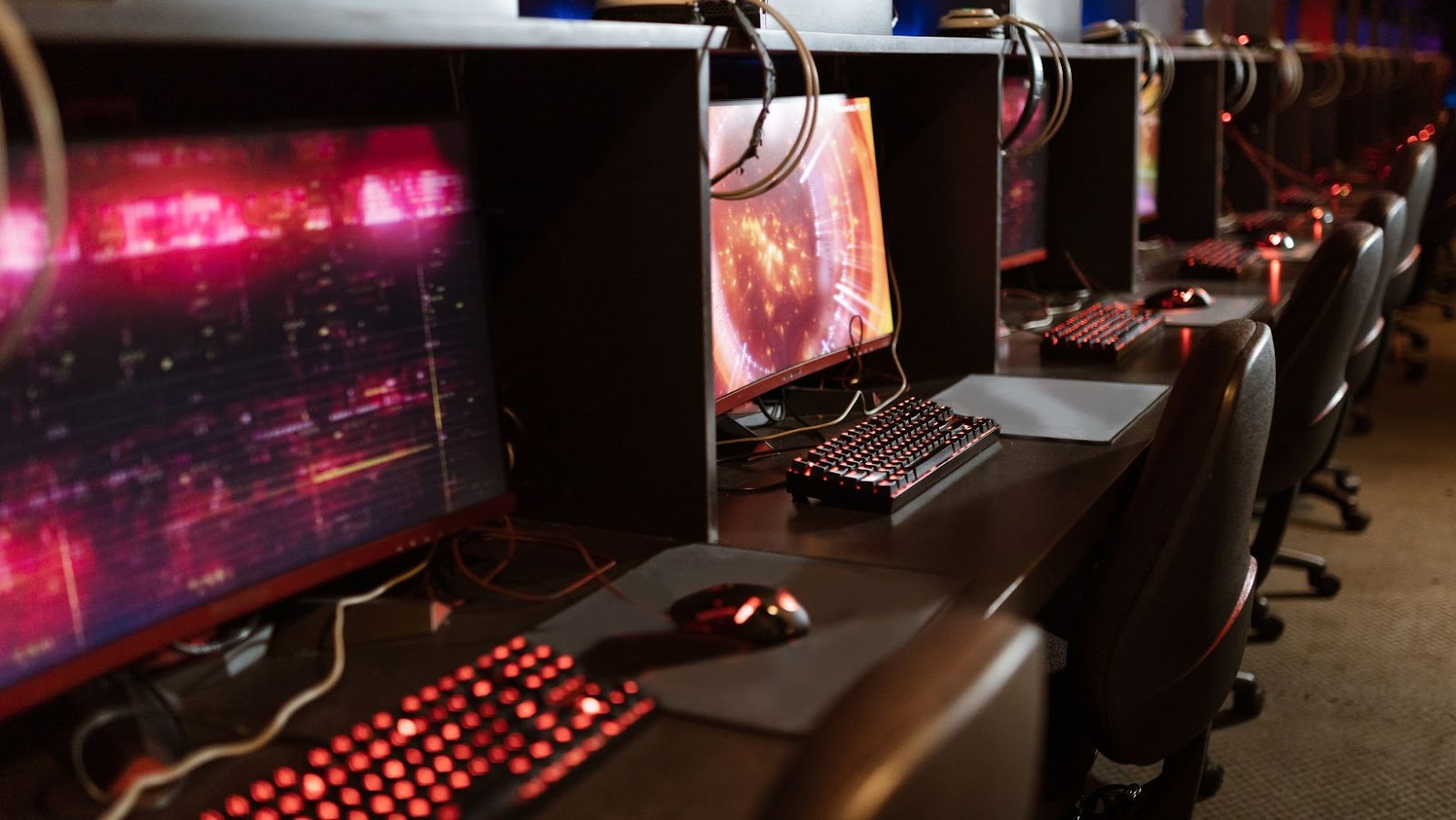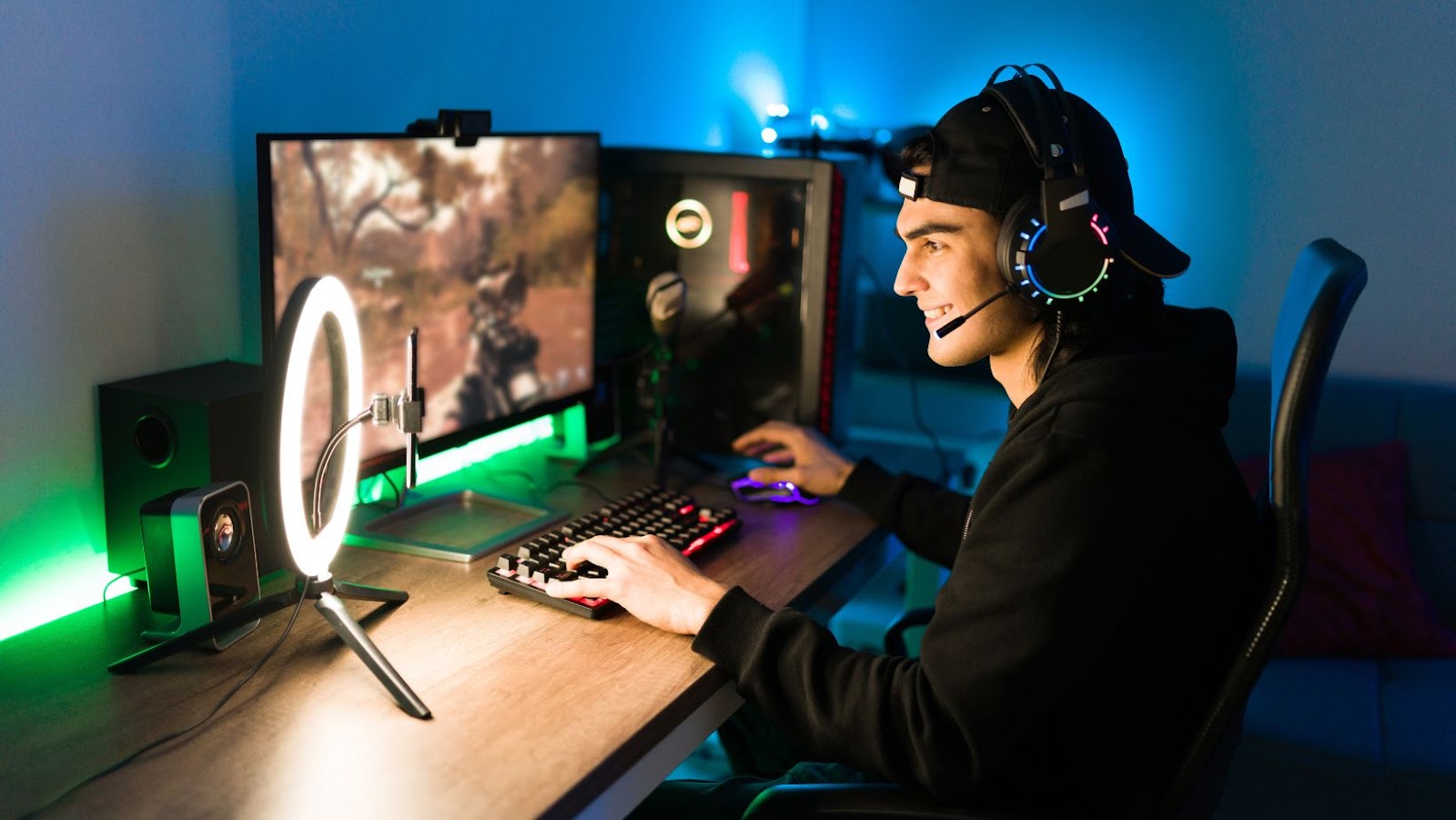 What is a Gaming PC
What is a Gaming PC
A Gaming PC is a computer handpicked to provide the best gaming experience. Unlike ordinary PCs, which usually fulfill a variety of diverse tasks, Gaming PCs maximize their capabilities towards delivering detailed graphics, ultra-fast processing, and superior audio, to ensure high-quality gaming. These tailored machines cater to hardcore gaming enthusiasts by meeting the heavy demands of modern games that need sophisticated hardware.
A Gaming PC is more than the sum of its parts. However, certain key components lay the foundation for an exceptional gaming experience:
- Graphics Processing Unit (GPU): The GPU, sometimes referred to as the video card, renders game graphics. The better the GPU, the more realistic and smoother the game visuals.
- Central Processing Unit (CPU): The CPU does the heavy lifting when it comes to running the game’s underlying mechanics. A faster CPU improves overall game performance.
- Random Access Memory (RAM): In gaming, the role of RAM is crucial as it holds data that the game uses frequently. More RAM can help certain games run more smoothly.
- Storage: When it comes to game storage, speed matters. Solid State Drives (SSDs) load games faster than regular Hard Disk Drives (HDDs).
- Power Supply Unit (PSU): A quality PSU ensures that all components receive the power they require, optimizing system stability and lifespan.
Each of these components plays a vital role, and the sum of their performance determines the user’s gaming experience.
 Distinguishing Features of a Gaming PC
Distinguishing Features of a Gaming PC
In the realm of digital entertainment, the bespoke design of gaming PCs sets them apart. This uniqueness lies in features that ensure swift processing, lifelike imagery, and immersive sounds. Below, we delve into these attributes.
What is a Gaming PC? Gaming PCs pack powerful processors that are synonymous with high-performance gaming. Regarded as the brain of a computer, the central processing unit (CPU) dictates the speed of all computing tasks. For example, Intel’s Core i7 and Core i9, along with AMD’s Ryzen 7 and Ryzen 9, often sit at the heart of gaming PCs. They reliably handle demanding tasks, including real-time ray tracing and artificial intelligence workloads, critical in modern games.
Gaming PCs house advanced graphics cards or Graphic Processing Units (GPUs), to render high-resolution images swiftly. These GPUs dovetail with the CPU to perform complex computations rampant in contemporary games. Notably, cards like Nvidia’s GeForce RTX 2080 Ti or AMD’s Radeon RX 5700 XT sit at the pinnacle of the graphics card hierarchy. They drive gaming PCs to display intense visuals, dynamically colored environments, and particle effects, encapsulating the essence of an immersive gaming experience.
The appeal of gaming PCs extends to their audio performance and controls. Gaming platforms often use dedicated sound cards or integrated audio chipsets that deliver clear, high-definition sound. They provide an immersive aural experience, allowing gamers to thoroughly enjoy background scores and sound effects. For instance, products like Creative’s Sound BlasterX AE-5 yield stirring audio output.
In terms of gaming controls, gaming PCs offer customizable peripherals. From programmable buttons on a mouse to digital keyboards with anti-ghosting features, the control elements enhance the player’s precision and speed, transforming the gaming experience. Brands like Logitech, Razer, or Corsair showcase this best, offering a range of keyboard and mouse bundles customized for the gaming community.
 How does a Gaming PC Differ from Regular PCs?
How does a Gaming PC Differ from Regular PCs?
What is a Gaming PC? A gaming PC sets itself apart from regular PCs by delivering impactful performance abilities and hardware specifications. It’s tailored to meet the high demands of modern games, ensuring a seamless and immersive gaming experience.
When judging a gaming PC against a regular PC, a notable difference arises from performance levels. Gaming PCs exemplify superior processing power, enabling them to handle tasks that would stall ordinary computers. They facilitate smoother gameplay, faster refresh rates and quicker load times. For instance, while an average PC might take longer to load high-definition graphics, a gaming PC ensures little to no lag or buffer.
Gaming PCs outshine regular PCs not just in performance, but also in hardware configurations. They typically employ high-performance components including powerful CPUs like Intel’s Core i7 or AMD’s Ryzen 7, and superior GPUs like Nvidia’s GeForce RTX 2080 Ti or AMD’s Radeon RX 5700 XT. These parts are often not included in ordinary computers. Gaming PCs additionally feature larger and faster storage options such as Solid State Drives (SSDs) and superior RAM capacities. At a glance, the cumulative result of these hardware upgrades enables gaming PCs to provide a significantly more powerful and immersive gaming experience than their regular PC counterparts.